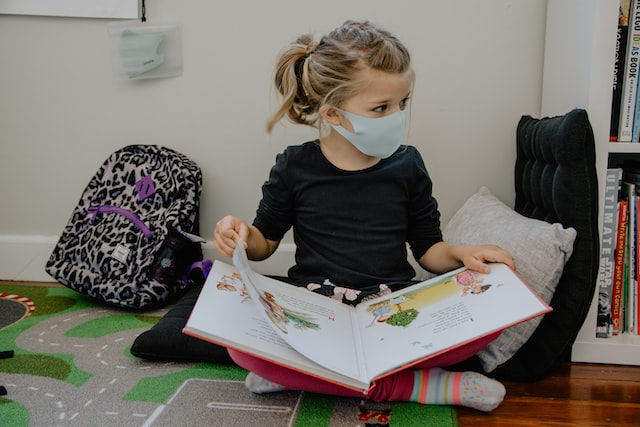Miguel Cardona—The Secretary of Education—visited some schools in Las Vegas on Thursday to get to know from students the setbacks they faced in learning, while schools were closed due to the pandemic.
“These last couple of years have been pretty rough, right?” he asked a class during break.
“Yeah,” said the class members, and trailed off.
However, Cordona told them they’ve been resilient, which is inspiring.
Cordona arrived from Washington, D.C., to find out what schools need both socially and academically post the lockdown. At Spring Valley, his focus was mental health.
A panel made up of students said that teachers and counselors had reached out regularly while the school was functioning online last year, although things were still difficult.
Nykita Rustad, who is a senior at the school, said that the Hope Squad was among the best means to cope with isolation. This squad is a suicide prevention program led by peers, which keeps connecting students in need of emotional support.
According to Nykita, making connections was great. Senior class president Nathan Alemeseged said that his peers were finding it hard to open up, and do not feel as at ease at school as before.
Sophomore Alijah Adem and junior Madeline Virissimo, who play basketball and soccer respectively, said that sports were very vital socially.
Senior Miguel Torres, who is a member of the Japanese club as well as the public service society, said that activities offered a safe space to students.
“School for a lot of people is where students go to express themselves… to feel included,” he said. “After a year of online school and all of the extracurriculars being put to the side, reestablishing that and rebuilding that is a really, really big challenge.”
Students made use of a straightforward color-coded screening system online which let staff know the way they were feeling. For example, if a student gave a yellow or red rating, a counselor reached out, according to Principal Tara Powell.
Alemeseged admitted he used to view counselors as just doing their job, but distance learning made him feel their concern was genuine. Vissimo said that her history teacher during “COVID year”, whom she initially knew only through a laptop, greets her in the halls these days.
Natalie McLintock, who serves among Spring Valley’s eight counselors, stated that having no fewer than one licensed therapist in the school could work out ideally in situations that went beyond counselor’s jobs, because the latter cover a lot of responsibilities including career and college readiness. This was something that Colleague John Tyler agreed with.
“Teachers, admin, even us counselors are pulled in so many directions,” he said. “The kids are coming in with a wide range of issues that weren’t there two years ago. The pandemic brought them out.”
Cardona’s visit came about two weeks on the heels of the introduction of the Youth Mental Health and Suicide Prevention Act, aimed at directing federal funding towards K-12 schools to promote mental health as well as suicide prevention efforts.
The funding can be had by universities and colleges, but it is not available for younger students. President Biden had made a campaign promise of doubling counselor and mental health professional numbers.
“We want to be sure that you’re OK and we’re here today to listen,” Rosen said to the students. “We want you to know that we see you, we hear you, we’re here for you and we have your back.”
Cardona is of the opinion that schools should be open, and that students need to pull alongside academic standards after these institutions closed due to the pandemic. He also said that it was clear relationships mattered too.
“Reopening is the baseline. We need to do better. Our schools moving forward have to be better; our students deserve it, our parents deserve it,” he said. “We’ve gone through a lot as a country. We have (pandemic relief) funding now, we have strong leadership here. We know that providing mental health support is a bigger part of education moving forward.”
